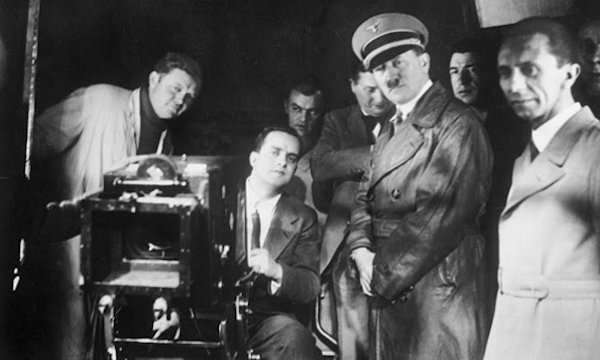 A Harvard scholar has alleged in a book that the executives of major Hollywood film studios, including Jewish ones, collaborated with Nazi dictator Adolf Hitler during the early years of his rule in Germany. Historian Ben Urwand, who spent a decade sifting through German and American archives, said: "I want to bring out a hidden episode in Hollywood history and an episode that has not been reported accurately." In his book ‘The Collaboration: Hollywood's Pact with Hitler’, which is to be published in November, he claims that Hollywood studio chiefs, many of them recent eastern European Jewish refugees, enthusiastically worked with Hitler's censors to alter films or even cancel productions entirely in order to protect access to the German film market.
A Harvard scholar has alleged in a book that the executives of major Hollywood film studios, including Jewish ones, collaborated with Nazi dictator Adolf Hitler during the early years of his rule in Germany. Historian Ben Urwand, who spent a decade sifting through German and American archives, said: "I want to bring out a hidden episode in Hollywood history and an episode that has not been reported accurately." In his book ‘The Collaboration: Hollywood's Pact with Hitler’, which is to be published in November, he claims that Hollywood studio chiefs, many of them recent eastern European Jewish refugees, enthusiastically worked with Hitler's censors to alter films or even cancel productions entirely in order to protect access to the German film market.
"In the 1930s the Hollywood studios not only collaborated by not making films that attacked the Nazis, they also did not defend the Jews or touch on Germany's persecution of the Jews," Urwand told the British weekly ‘The Observer’.
Urwand added that “specific Jews in the movie business made decisions to work with Nazi leaders." In his book, he writes that “Hollywood executives knew exactly what was going on in Germany, not only because it had been forced to fire its own Jewish salesmen but because the persecution of the Jews was well known at the time."
Urwand gives evidence that as late as January 1938 the German office of 20th Century Fox was requesting Hitler's views about American movies. The letter was signed with the Nazi salutation "Heil Hitler". Three studios – MGM, Paramount and 20th Century Fox – did not pull out of Germany until 1940, a year after World War II had begun.
The collaboration of Hollywood with the regime began in 1930, the historian says, when Carl Laemmle Jr. of Universal Studios agreed major cuts to the film World War I movie ‘All Quiet On The Western Front’ after riots erupted that in Germany instigated by the Nazi party, which was then still in opposition. Encouraged by Hitler’s chief propagandist Joseph Goebbels, Nazi activists set off stink bombs and let white mice loose in movie theaters.
Urwand’s book claims the relationship was so enmeshed that MGM, the biggest studio at the time, went so far as to invest in German rearmament to get around currency export restrictions. The historian told ‘The Observer’: "Collaboration: it's not my word or invention. I got it from materials from both sides. It's the word that's regularly used to describe their relationship." He said the German head of MGM spoke to the German press of the "satisfying collaboration on both sides".
"It's collaboration in the sense that Hollywood movie executives and Nazi officials are actually collaborating and the Nazis are having the final say," said Urwand. "They didn't want to lose their business. They didn't want to have to go home and come back under different conditions. They also felt Hitler might win the war and they wanted to work with the Nazis to preserve their business."
Evidence disputed
However, some scholars disagree with the conclusion that Hollywood executives were accomplices of the Nazi propaganda machine.
Tom Doherty of Brandeis University, who recently published ‘Hollywood and Hitler, 1933-1939’, found US commerce department documents advising MGM that one way to get blocked currency out of Germany was to invest in armaments. "Maybe it doesn't look too good, but in 1936 Germany was a friendly nation and America was not a signatory to the treaty of Versailles, Doherty is quoted by ‘The Observer’ as saying.
Other historians, including Steven Ross at the University of Southern California, have found evidence of an anti-Nazi spy ring operating in Hollywood – financed by the same studio heads who were complying with Nazi censorship demands. Ross states: "The moguls who have been castigated for putting business ahead of Jewish identity and loyalty were in fact working behind the scenes to help Jews."








